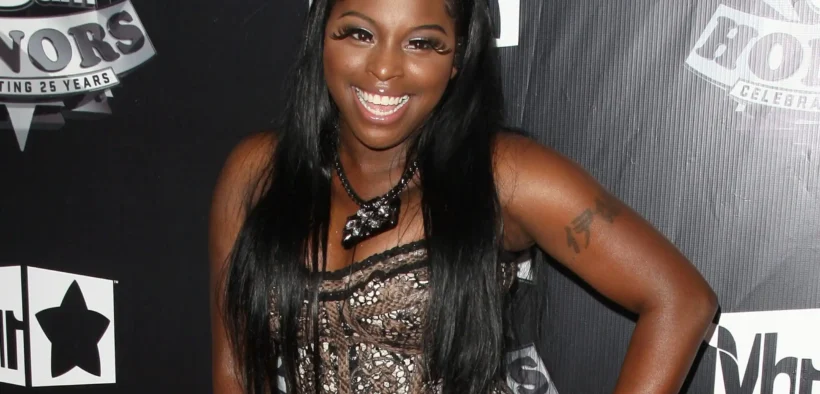How Foxy Brown Paved the Way for Black Female Rappers in Hip-Hop
Share

For nearly three decades, Foxy Brown has remained one of the most enigmatic and influential figures in the hip-hop genre.
Born Inga DeCarlo Fung Marchand in Brooklyn, New York, the rapper burst onto the music scene in the mid-1990s, quickly earning a reputation for her raw lyricism, unapologetic confidence, and distinct style that helped shape an era.
Early Breakthrough and Meteoric Rise
Foxy’s rise was as fast as it was dazzling. Discovered at 15 after a show-stopping performance at a local talent contest, she soon caught the attention of Def Jam and the hip-hop world at large.
In 1996, she dropped her debut album, “Ill Na Na,” a platinum-selling project that combined streetwise bravado with seductive beats, and instantly made her a household name. The record featured collaborations with Jay-Z, Blackstreet, and Method Man, marking Foxy as a force alongside the genre’s biggest stars.
With tracks like “Get Me Home” and “I’ll Be,” Foxy’s delivery was brash and bold, offering a new model of femininity in rap—one that was both glamorous and gritty. Her lyricism blended sensuality with street smarts, and she became an icon for young women looking to claim their space in a male-dominated industry.
Making Her Mark: Collaboration and Rivalries
Beyond her solo work, Foxy Brown was known for her high-profile collaborations. She formed the hip-hop supergroup The Firm alongside Nas, AZ, and Nature, with Dr. Dre producing their lone self-titled album. The project, though short-lived, helped cement her place in East Coast rap’s elite.
Throughout her career, Foxy was never far from the headlines, whether for her fiery rivalries with contemporaries like Lil’ Kim or her infamous outspokenness. Yet, she also inspired respect: Jay-Z credits her for elevating his early work, and her verses are still studied for their razor-sharp wordplay.
Trials, Tribulations, and Resilience
Like many of her peers, Foxy’s journey has been marked by struggles. She faced legal troubles, label disputes, and a well-publicized battle with sudden hearing loss in the mid-2000s, a condition that nearly ended her career.
After undergoing surgery and enduring a lengthy recovery, she staged a comeback, releasing new music and performing to loyal crowds who never stopped rooting for her.
Legacy: Style, Influence, and the Blueprint for Female Rappers
Foxy Brown’s influence goes beyond the music. She helped define the late ’90s “bad gyal” aesthetic, luxurious, edgy, and completely unapologetic. Her impact can be seen in artists from Nicki Minaj to Megan Thee Stallion, who cite Foxy as a pioneer who broke down barriers for Black women in hip-hop.
Despite extended hiatuses and a famously private nature, Foxy continues to drop guest verses and make occasional appearances, always reminding the world why she’s hip-hop royalty.
Personal Life and Philanthropy
Foxy has kept her personal life closely guarded. She welcomed a daughter in 2017 and occasionally shares glimpses of motherhood on social media.
Away from the spotlight, she’s been active in various philanthropic efforts, including supporting organizations for hearing loss and advocating for young women navigating the music industry.


















